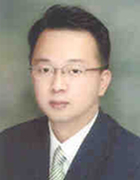
SL-1 Development Strategy of Applied Biological Chemistry
Hoi-Seon Lee*
ABCH Editor-in-Chief,
Department of Bioenvironmental Chemistry, College of Agriculture and Life Sciences,
Chonbuk National University, Jeonju 54896, Republic of Korea
The Korean Society for Applied Biological Chemistry (KSABC), which was first established in 1960, will reach its 60th anniversary next year. Over the last 60 years, the Society has achieved remarkable development, and it is now publishing two journals of which Applied Biological Chemistry (ABCH) is an SCIE journal. Additionally, the number of members of the society has reached 3,800, and it has been recognized as one of the largest conferences in Korea. The top priority task for the remarkable development of our society is to increase the impact factor of ABCH and the resulting academic influence. To do so, we will announce the review criteria of the journal, which have been refined by the current ABCH editorial committee, to the entire members of the society during the conference. We also have a place for various discussions. Now that scientific research, which produces outstanding achievements, has been actively carried out in Korea, the prevention and verification of research misconduct have become an important issue. As many countries have made systematic efforts to eradicate research misconduct, it is urgent for us to prepare various discussions and plans for establishing research ethics in keeping with the demands of the times. Therefore, the introduction of the relevant content has been desperately required for the development of the journal. Thus, the Ministry of Education revised the 「Guideline for Securing Research Ethics (instructions from the Ministry of Education)」 (hereinafter referred to as the “Guideline for Research Ethics”) on November 3, 2015 to prevent researchers’ research misconduct and strengthen accountability. The revised Guideline for Research Ethics clearly defines the types of research misconduct such as “plagiarism” and “unjustified list of authors,” thereby specifying the criteria of research misconduct. Based on these definitions, the ABCH journal has rigorously reviewed papers. Moreover, it is expected that the qualitative evaluation method of research achievement will be introduced in the assessment of all national research projects. As a preemptive countermeasure for this introduction, various efforts should be made by the society. ABCH Journal Editorial Committee is putting in a great deal of efforts to increase the influence of this journal by discussing the introduction of an open access production system.
